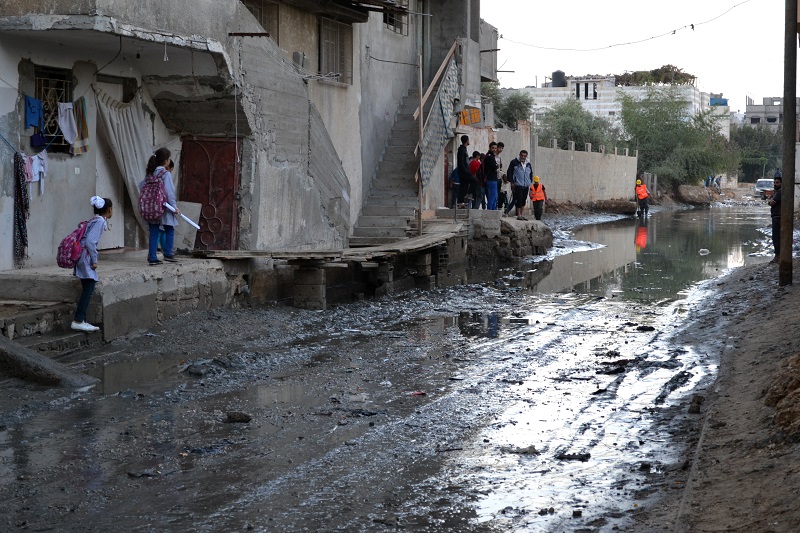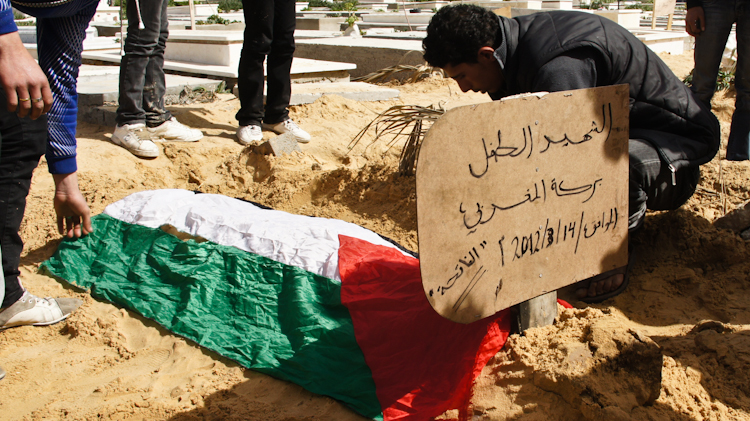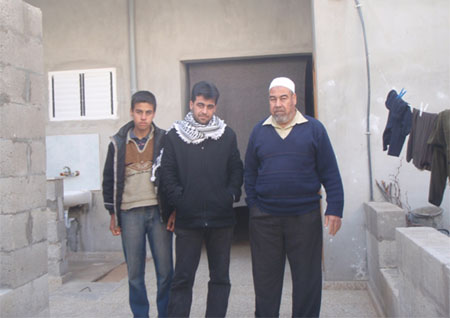Tag: Zeitoun
-
Sewage flows in Gaza streets for 18 hours a day
21st November 2013 | International Solidarity Movement, Rosa Schiano | Gaza, Occupied Palestine The lack of electricity in the Gaza Strip is also creating an environmental crisis. Wastewater treatment facilities have stopped due to the lack of fuel. In the Zeitoun neighborhood, in the east of Gaza City, a sewage pumping station has stopped working…
-
Two Stray Bullets in Gaza
by Johnny Bravo 24 March 2012 | International Solidarity Movement, Gaza On Sunday it was reported that a young boy had been shot on farmland near the Rafah crossing. The details were unclear. Several colleagues and I traveled to Rafah to find out what happened. After making several inquiries, we entered a Bedouin area several…
-
12 January 2009 – The Ayad family
12 January 2012 | Palestinian Centre for Human Rights “If there is another war I won’t be moving, even if we die there, I don’t want to go through that again” On 12 January 2009, the Ayad family home in the Zaytoon area of Gaza City was bulldozed by Israeli forces. Rezeq Ayad, 60, his…



